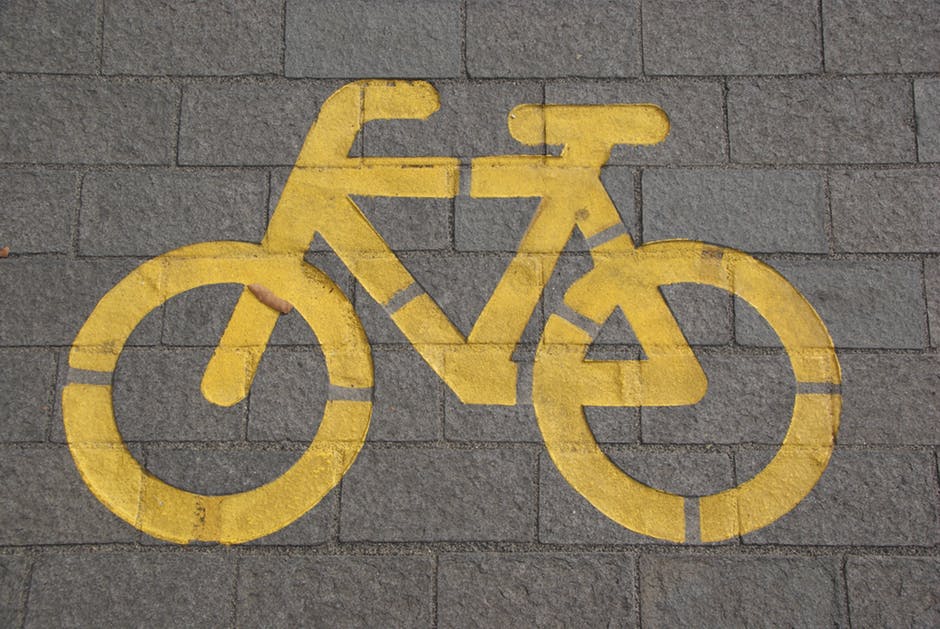Cycling towards a more sustainable future
10 reasons why you should hop on your bike
By Rute Costa
From improving your health, to reducing carbon emissions and boosting the economy, the positive impact cycling can have is far and wide.

1. Cycling saves time and money
Cycling is physical exercise that doubles up as your commute: suddenly the cost of public transport vanishes and you no longer need to pay for a gym membership! You would also be saving the time you could be devoting to physical activity later in the day. Replace the hours spent waiting for the bus or uncomfortably squished in the underground, with moments of healthy freedom on a bike: the benefits drastically outweigh the costs.

2. Cycling prevents obesity
If no action is taken, estimates suggest that 60% of men, 50% of women, and 25% of children in the UK will be obese by 2050, which would cost the NHS £10 billion per annum. Cycling can act as a preventive measure for obesity if encouraged in children from an early age: it is a playful way of burning calories, getting to destinations quickly, and keeping healthy.

3. Cycling makes you happier
As a form of aerobic exercise, cycling triggers the production of endorphins. These magical chemicals produce a positive feeling in the body, similar to that of morphine: often described as “euphoric”, and sometimes referred to as “runner’s high”. This sensation comes hand-in-hand with a more positive and revitalising outlook on life. Cycling also generates a feeling of freedom, and of being more connected to the environment around you.

4. Cycling reduces the risk of cancer and heart disease
Cycling lowers the risk of developing cancer by 45%, and reduces the possibility of cardiovascular disease by 46% compared to other modes of transport, says the UK National Cycling Association. A more recent study conducted by the University of Glasgow reinforces this: through analysing over 260,000 individuals over the course of five years, it found that cycling to work can cut a riders risk of developing heart disease or cancer in half.

5. Cycling reduces air pollution
Road transport is responsible for one third of nitrogen oxides emissions and over one fourth of particulate matter – both extremely hazardous to our health. Yearly, 40,000 UK deaths are related to outdoor pollution. Cycling, on the other hand, is completely clean and guilt-free. Having more people on bikes would help reduce this worrying number. A study conducted by Healthy Air Campaign, Kings College London and Camden Council measured air pollution for a variety of modes of transport, and concluded that cyclists are exposed to five times less air pollution than those in cars. Not only would cyclists contribute to cutting down emissions, they would also be more immune to them.

6. Cycling is safer than driving
There is safety in numbers. This is also true of cycling: the more cyclists there are on the streets, the more drivers become aware of them, and the safer cycling becomes. With appropriate infrastructure and cycling safety equipment (never forget your helmet and bike lights!), the health benefits of cycling significantly outweigh the injury risks: the average is 20:1 – life years gained due to the benefits of cycling versus the life-years lost through injuries.

7. Cycling empowers people and promotes equality
Hopping on a bike can get you almost anywhere and has zero cost. It is an extremely independent and affordable mode of transport, and can empower people by shortening distances, and cutting down on costs imposed by driving or public transport. This is most obvious in developing countries – where it can reduce hours of walking to work, school, or even to get water and food – but no less true of cities. Cycling effectively combats isolation and inequality.

8. Cycling reduces CO2 and greenhouse gas emissions
In 2015, the transport sector was responsible for 24% of greenhouse emissions, and 29% of CO2 emissions in the UK. As an alternative to driving, cycling is part of the solution for a low carbon future. According to the National Cycling Association, if an average daily commuter were to switch from driving to cycling, they would save half a tonne of carbon dioxide per year. And if the UK cycled as much as the Netherlands, the positive impact would be drastic: we would have 2 million fewer cars on the roads, and cut down on our CO2 emissions by over 1,500 tonnes a year.

9. Cycling makes cities more accessible
Cities with great cycling infrastructure benefit both commuters and tourists.Cycling is a great way to get to know a place, allowing visitors to stop at different attractions, at their own pace, whilst enjoying a dynamic view of the city. Bike sharing services help make this possible. In Copenhagen, electrically assisted bikes are dotted around the city, and their smart screens with navigation systems allow visitors to plan their independent tours. Amsterdam is famous for its cycling culture, which has in itself become a tourist attraction. Investing in cycling infrastructure that connects the city to its inhabitants and tourists is an incredible economical boost.

10. Cycling boosts the economy
Apart from encouraging tourism, cycling cuts the cost of congestion, pollution and health care: since its establishment 20 years ago, the National Cycle Network has saved the UK economy more than £7 billion. Researchcommissioned by Cycling UK found out that if cycling rates increased from the current 2% to 10% by 2025, and 25% by 2050, the benefits would be worth £248 billion for the UK economy. Recently, a study by SQWconcluded that a 50% increase in cycling, would reduce healthcare costs by £1.3 billion per year. Numbers do not lie. Cycling is more economically sustainable than any other road transport.

